Upper School
Upper School Academics
A strong academic foundation in preparation for college
Our upper school academic program is a rigorous course of study designed to prepare our students for college. Our course requirements are comparable to mainstream high schools, with the added focus on experiential learning, with differentiated approaches and specialized methodologies designed to support students with learning disabilities.
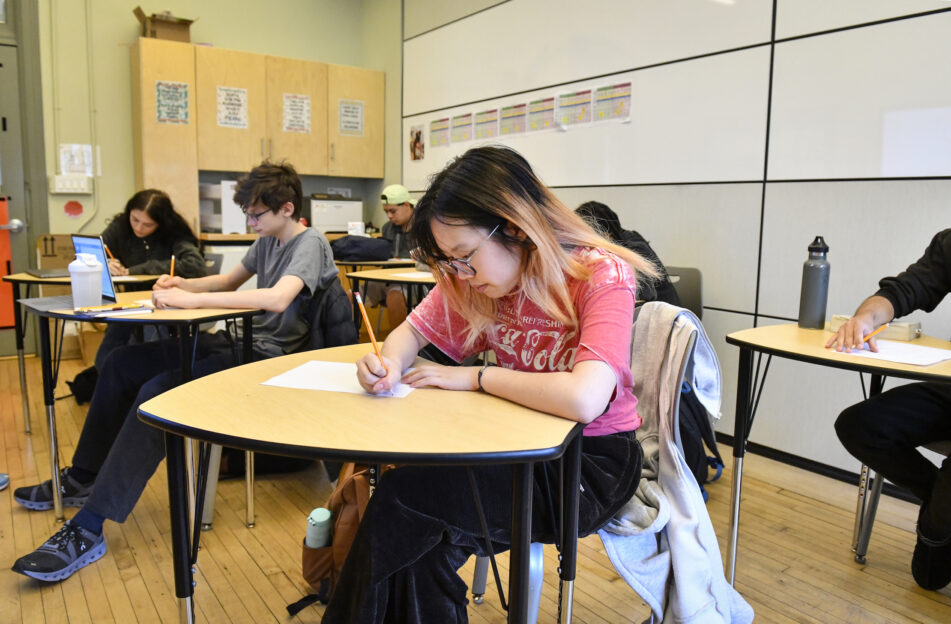
Course of Study
In order to graduate, our upper school students are required to complete the following course of study:
- English: 4 years
- Mathematics: 3 years minimum with an optional 4th year
- History: 4 years
- Science: 3 years minimum with an optional 4th year
- Second Language: 2 years minimum with optional 3rd and 4th years
- Health and Wellness: 3 years
- Physical Education: 4 years
- Arts: 2 years minimum, with optional 3rd and 4th years
When appropriate, we prepare students for AP exams in different subjects. MMFS eleventh and twelfth grade students have taken and done well on Calculus AB and BC exams as well as the Physics AP exam.
View sample student schedules for each grade.
To read detailed descriptions about courses offered this year, please refer to the Upper School Course Descriptions.
English
The themes covered in English classes tie in with materials and concepts being studied in other classes. The key skills are essay writing, citations, and using textual evidence.
Ninth grade students focus on coming-of-age literature with an emphasis on exploring different identities. Students write essays about character identities, the culture and context of their upbringing, as well as the obstacles and choices they make. Texts have included To Kill a Mockingbird by Harper Lee, The Nickel Boys by Colson Whitehead, The Breadwinner by Deborah Ellis, The Absolutely True Diary of a Part-Time Indian by Sherman Alexie, Mosquitoland by David Arnold, and Persepolis by Marjane Satrapi.
In tenth grade, students focus on stories of courage and perseverance, including The Odyssey by Homer (Emily Wilson translation and graphic novel by Gareth Hinds), Song of Solomon by Toni Morrison, Balzac and the Little Chinese Seamstress by Dai Sijie, 1984 by George Orwell, The Handmaid’s Tale by Margaret Atwood, A Long Walk to Water by Linda Sue Park, Feed by M.T. Anderson, and The Poet X by Elizabeth Acevedo.
Eleventh grade English classes focus on the theme of moral dilemmas. Texts explored include The Great Gatsby by F. Scott Fitzgerald, The Metamorphosis by Franz Kafka, selected short stories by Nella Larsen, Zora Neale Hurston, and Langston Hughes, and A Lesson Before Dying by Ernest J. Gaines.
In twelfth grade, the theme is outsiders. Sample texts include Dubliners by James Joyce, The Lone Ranger and Tonto Fistfight in Heaven by Sherman Alexie, Giovanni’s Room by James Baldwin, Kindred by Octavia E. Butler, and the play A Streetcar Named Desire by Tennessee Williams.
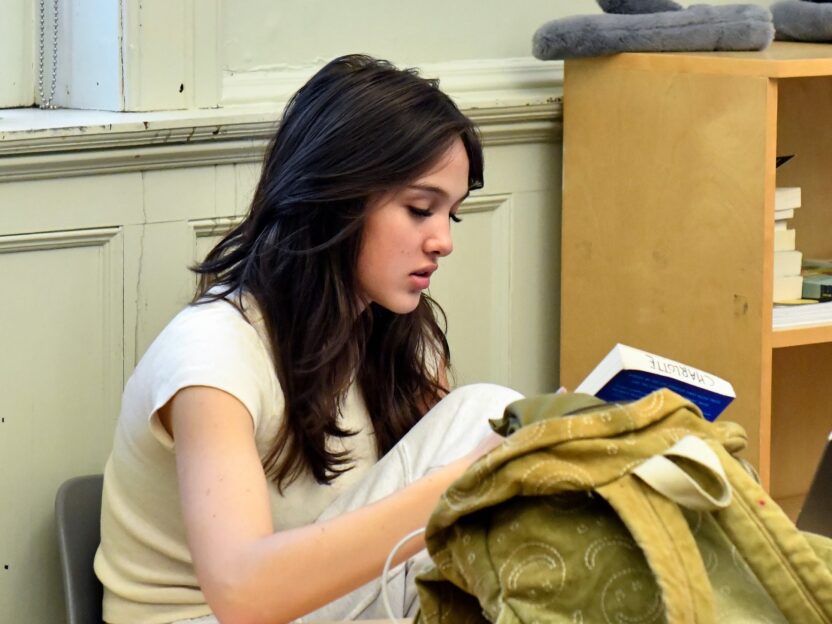
English classes focus on literary analysis, creative and analytical writing, inference skills, vocabulary development. Expository writing is a primary focus as preparation for college-level writing.
Math
With 17 math courses spanning from algebra to calculus, students are guided through mathematics courses that both meet their skills and challenge them. In order to meet the needs of a wide range of skills, there are five general math sequences. While most students follow a single sequence, there is flexibility in moving from one sequence to another.
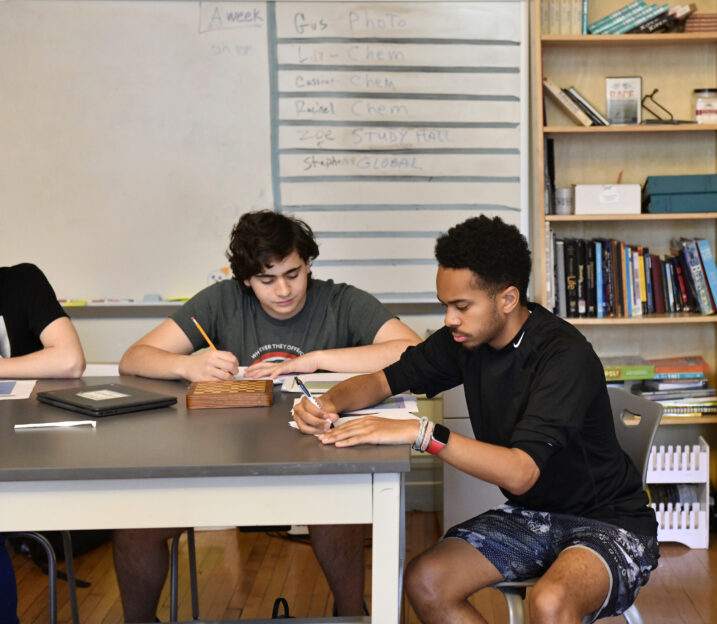
Key mathematics courses include:
- Pre-Algebra
- Algebra I
- Algebra II
- Geometry
- Pre-Calculus
- Calculus
- Life Skills Math
- Personal Finance
Students who elect to take a fourth year of math choose from a range of courses including advanced courses in calculus and statistics. Students in the calculus class have the option to pursue additional instruction to prepare them to take the AP calculus exam at the end of the year.
History
Our upper school history program educates students to be active and informed members of the global community.
The ninth grade curriculum focuses on twentieth-century world history with particular focus on global conflict. In tenth grade, the curriculum follows a global studies approach, using country-specific case studies to explore geographical, cultural, and historical themes from ancient history to the present. Eleventh grade students refine and deepen their understanding of the American system of government and focus on the recent history of the United States, with a particular focus on amplifying marginalized voices. In twelfth grade, students choose from an engaging array of courses based on themes such as social identity, philosophy, economics, and civics.
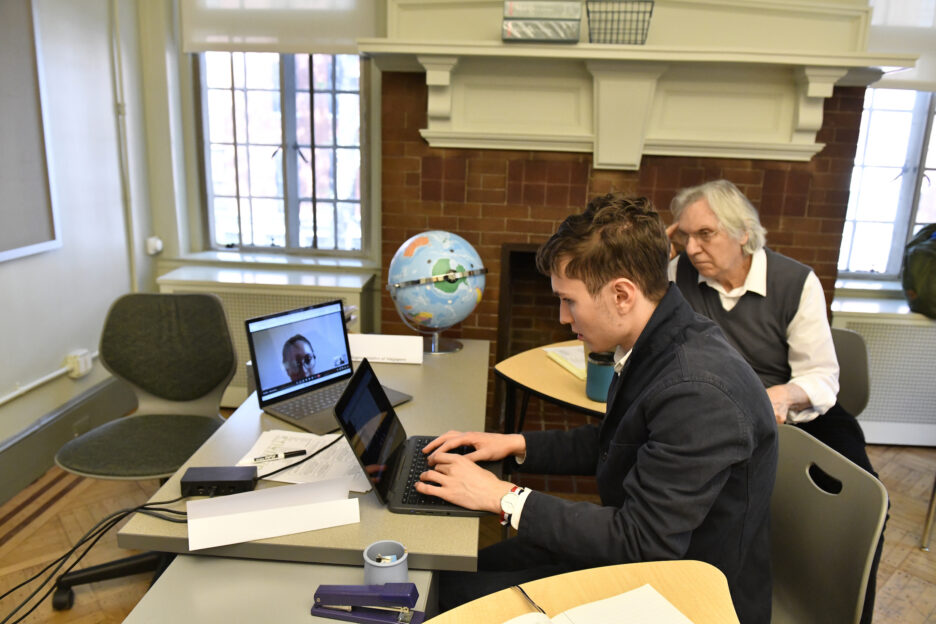
All students also study Quaker History and Practice. This course covers Quakers of historical importance, core Quaker values, and the practices that have given Quakers a worldwide reputation as changemakers.
History classes focus on note taking and research skills as well as using primary and secondary sources.
Science
A focus on the skills of scientific observation is at the core of the science program. The science curriculum incorporates technology throughout, offering a visually dynamic, interactive virtual component.
Ninth graders study earth and space sciences. Moving through tenth and eleventh grade, all students study chemistry and biology. Twelfth graders can choose from electives including: Environmental Science, Astronomy, Neuroscience, Topics in Physics, and STEM Fundamentals.
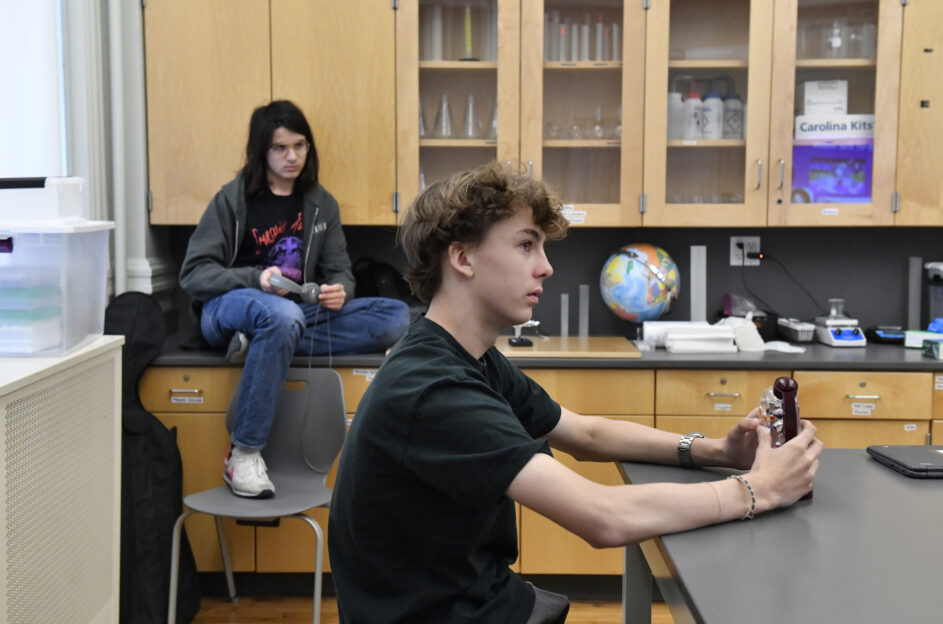
Second Language
All of our students study a second language. We believe that students with learning disabilities are capable of learning second languages, and that offering them this opportunity better prepares them to become global citizens. Our decision to require study of a second language ties in directly with our philosophy as a school.
We offer five levels of Spanish and four levels of American Sign Language (ASL).
Spanish
The strength of our Spanish program is the use of multimodal approaches and integration of assistive technology to ensure that the students are mastering the language and learning about different cultures at their own paces. To that end, class sizes are small.
Students develop speaking, listening, reading, and writing skills, and learn about Latinx history and cultures. Spanish proficiency is built through conversation and story.
American Sign Language
American Sign Language (ASL) is a visual-spatial language that uses a combination of hand shapes, palm orientations, movements, locations, and facial expressions to convey meaning. We offer students a rich and engaging four-year program that thoughtfully blends the intricacies of sign language with the richness of Deaf culture.
Every year, upper school students participate in Language Night, where students show off the skills they’ve developed and celebrate the cultures they’ve studied.
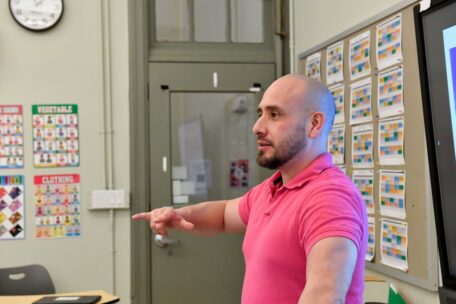
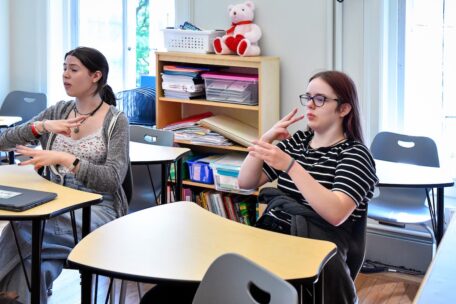
Health and Wellness
All upper school students participate in the Health and Wellness program, either through yearlong courses or specialized workshops. The challenges that all teenagers face, physical changes, social challenges, growing independence, and peer pressure, are heightened for students with learning disabilities. Our Health and Wellness program empowers teens with the skills necessary to make personal choices that are right for them.
Students have regular coursework covering such topics as healthy habits, interpersonal relationships, stress management, and disease prevention. Students discuss issues that affect their own personal health and wellness, and also issues that affect the global community. The Health and Wellness educator is available to meet with all students, when and if needed, throughout the year.